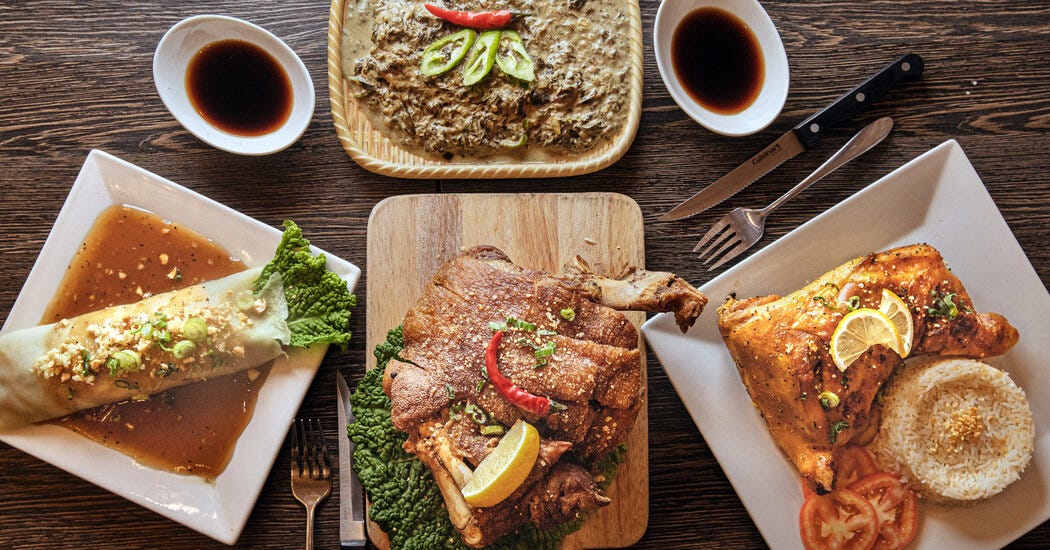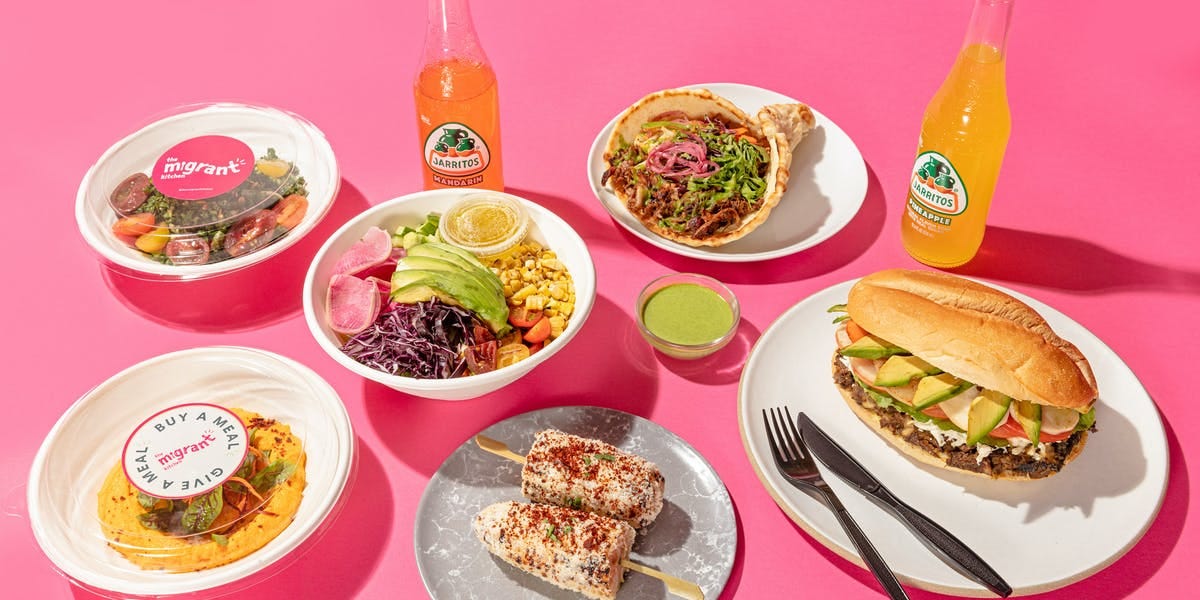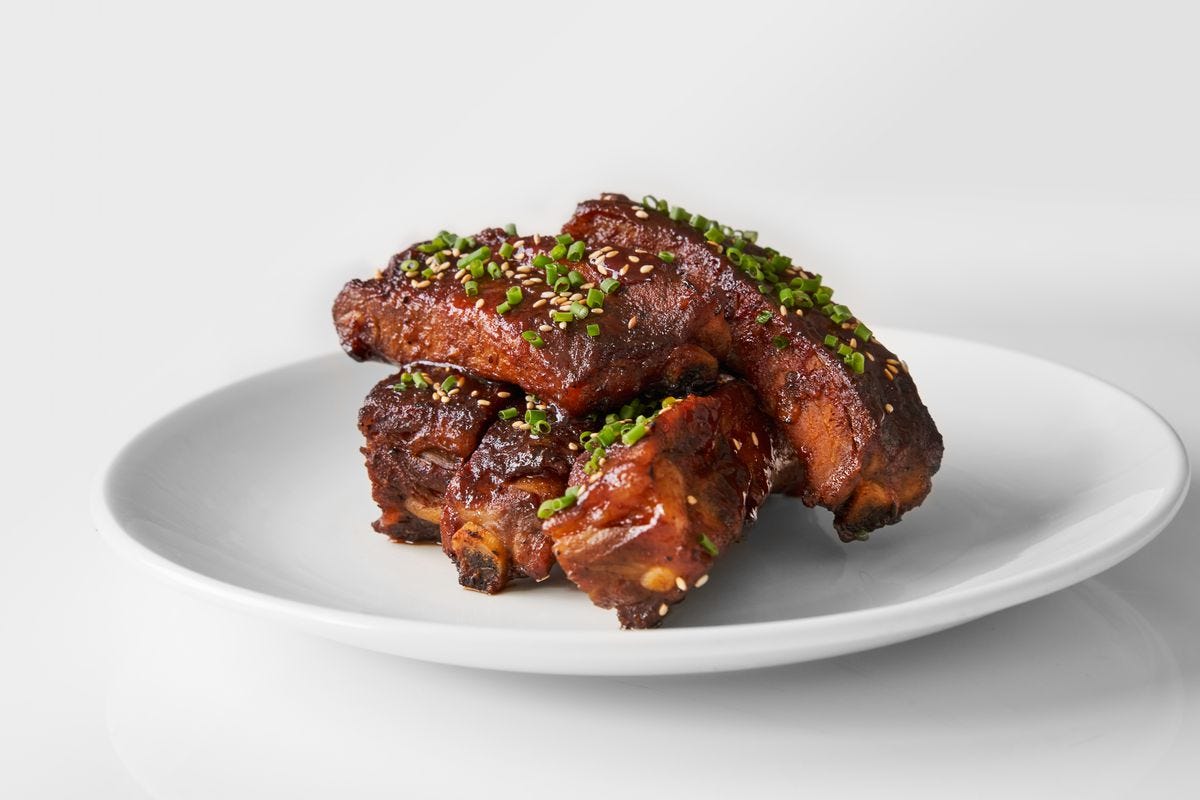Welcome to The Road Ahead! A newsletter musing on today’s emerging food culture and tomorrow’s opportunities.
Jonathan Gold, the LA-based, award-winning food critic once wrote: “As much as you would from a novel or a painting or an opera or movie, you can go to a restaurant, and eat a meal, and look at the people around you and smell the smells, and taste the flavors and learn something about the world that has a lot to do with what’s on your plate.”
Famous for venturing beyond the confines of fine dining and the latest tables in predictably trendy enclaves, Gold traversed the greater LA landscape to visit traditionally immigrant neighborhoods and spotlight restaurants that rarely got reviewed. Offering a platform to Mom & Pop shops, late-night food trucks and strip mall to-go windows right alongside expensive Italian and French eateries. Elevating cuisines, dishes and flavors that deserved equal recognition, from doro wot (Meals by Genet) to goat birria (El Parian). By way of profiling small, independent restaurants and a diverse range of chefs and food entrepreneurs, Gold’s work not only made different kinds of food more approachable, but by extension, also made different cultures, perspectives and voices more approachable, too.
What Gold knew, and what we as passionate diners have come to know, is that restaurants are not merely places, but portals that have the power to open us up to new ideas. They are the spaces where people who may never have had the opportunity to meet elsewhere are introduced. Where conversations are brokered. And where new thinking begins.
Last month, NYTimes restaurant critic, Pete Wells, captured this eloquently at the end of his piece to mark the return of NYC dining at full capacity, titled: What Americans Missed Most About Going to Restaurants. (It Wasn’t the Food.)
Whatever you think of orange wines, the fact is that the people who find them interesting form a loose social group. In a big, well-populated city, this group may overlap with hundreds of others: people who like Bernie Sanders, people who want more bike lanes, people who work for the police and people who want to defund the police, people who go to every meeting of the local land use committee, people who play in a salsa band.
People within those groups can meet one another online. But to meet people from the other groups, especially people who are interested in subjects you haven’t really thought about yet, we have coffee shops, bars and restaurants. They’re what we’ve got until somebody invents a better, more enjoyable way of eating and drinking while maintaining the social connections that keep cities moving forward.
During the pandemic, we all feared the loss and cost of restaurants closing, particularly the independent restaurantsthat offer us so much more than the food on our plate. Would there still be restaurants that served doro wot and goat birria when we came out of this crisis? Would there still be places to introduce us to new food cultures and culinary narratives?
Devastatingly, we did lose a lot. Many independently-owned restaurants across the country were forced to close permanently over the past 15 months. Many are still suffering as they navigate labor shortages, supply chain disruptions and new operational expenses to meet new customer experience demands. And it will take a long time still for the restaurant industry to fully rebound.
But there was light found within, that’s now shining the way forward…
With our cities reawakening, it’s been remarkable to survey some of the new restaurants that have emerged during the pandemic. Take a quick scan of the recent round ups in the NYTimes from this past April – 17 Restaurants Where New Yorkers Can Make Up for Lost Time – and again two weeks ago – The Most Exciting Place to Eat in Los Angeles is Chinatown – and you’ll start to see some commonalities. From Palestinian Street Food to Filipino Canteens, Arab Latin Pop-Ups to Taiwanese Diners, many of the most interesting new restaurant concepts that have launched over the past year and a half have not been classic French and Italian eateries, but more personal ventures with diverse culinary perspectives.
Instead of stunting the momentum of our food culture, it seems the pandemic has created an unusual confluence of circumstances that has opened up a gateway for new food entrepreneurs to take advantage of a series of market opportunities. A combination of more favorable leases, a dispersion of talent across the country and a welcome adoption of new business models has created a unique moment in time where barriers to entry have been lowered enough to open up an aperture for new culinary concepts to take hold and capture the attention of new audiences.
As we embark on this great “hot vax summer”, I’m filled with hope. Now, more than ever, might be the most exciting time to eat. To taste new ingredients, try new dishes and experiment with new flavors. But moreover, it might also be the most exciting time to strike up a new conversation. A chance for new ideas and fresh thinking.
Jonathan Gold died almost three years ago this month. It was a tragic loss for LA and the world’s food community. And having never met him, I can’t help but think about what he would write about today’s evolving restaurant landscape. Dishes from around the world being served, new stories being told. What I do know, is that the curiosity he sparked with his work, building bridges to all types of restaurants, food, and people, will thankfully carry on.
“I write about taco stands and fancy French restaurants to try to get people less afraid of their neighbors and to live their entire city instead of sticking to their part of town.” – Jonathan Gold
Currently at the top of my “must try” NYC restaurant list:
Bilao, Filipino restaurant on the Upper East Side, photo by The New York Times
The Migrant Kitchen, a Kitchen Pop-Up Concept Serving Arab Latin Cuisine in the Financial District & Brooklyn, photo by The Migrant Kitchen
Kjun, a Korean-Cajun Takeout & Delivery Concept in the East Village, photo by Eater NY
Have you dined at any of these restaurants? Would love to hear about your experiences! Drop a comment below or email me at ivy@butterandeggroad.com
Know someone who’d enjoy this newsletter?
Was this newsletter forwarded to you? Come join the journey on The Road Ahead!
Written by Ivy Ackerman, founder of Butter and Egg Road, an NYC-based creative culinary agency, building bridges between business and emerging food culture. Follow her on Instagram or LinkedIn.






